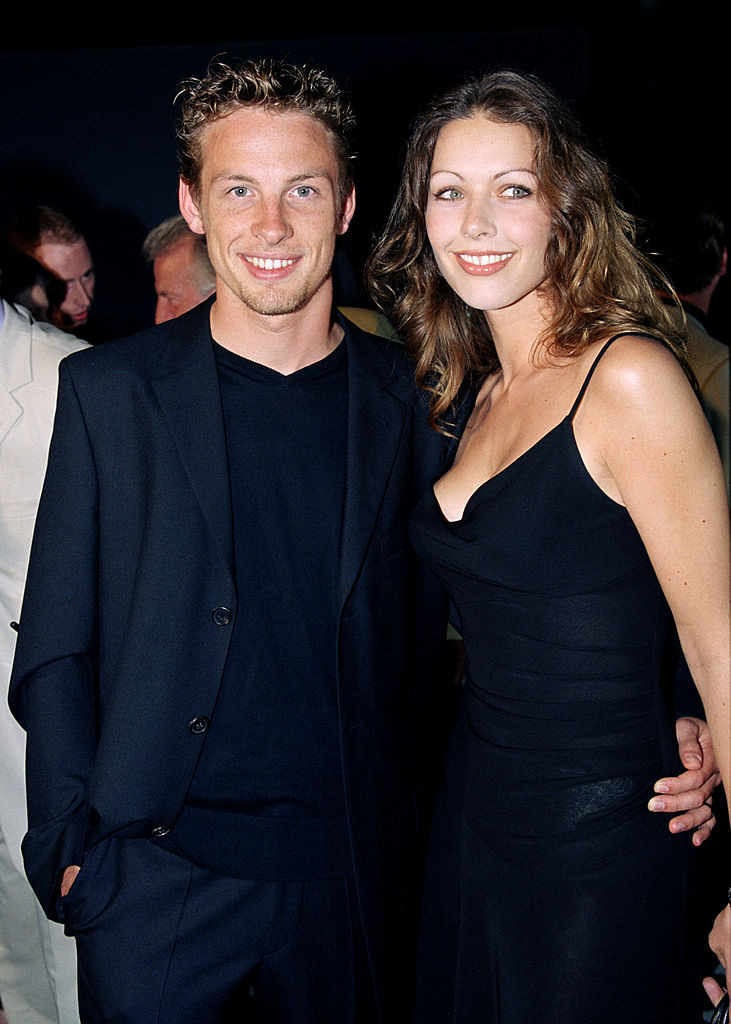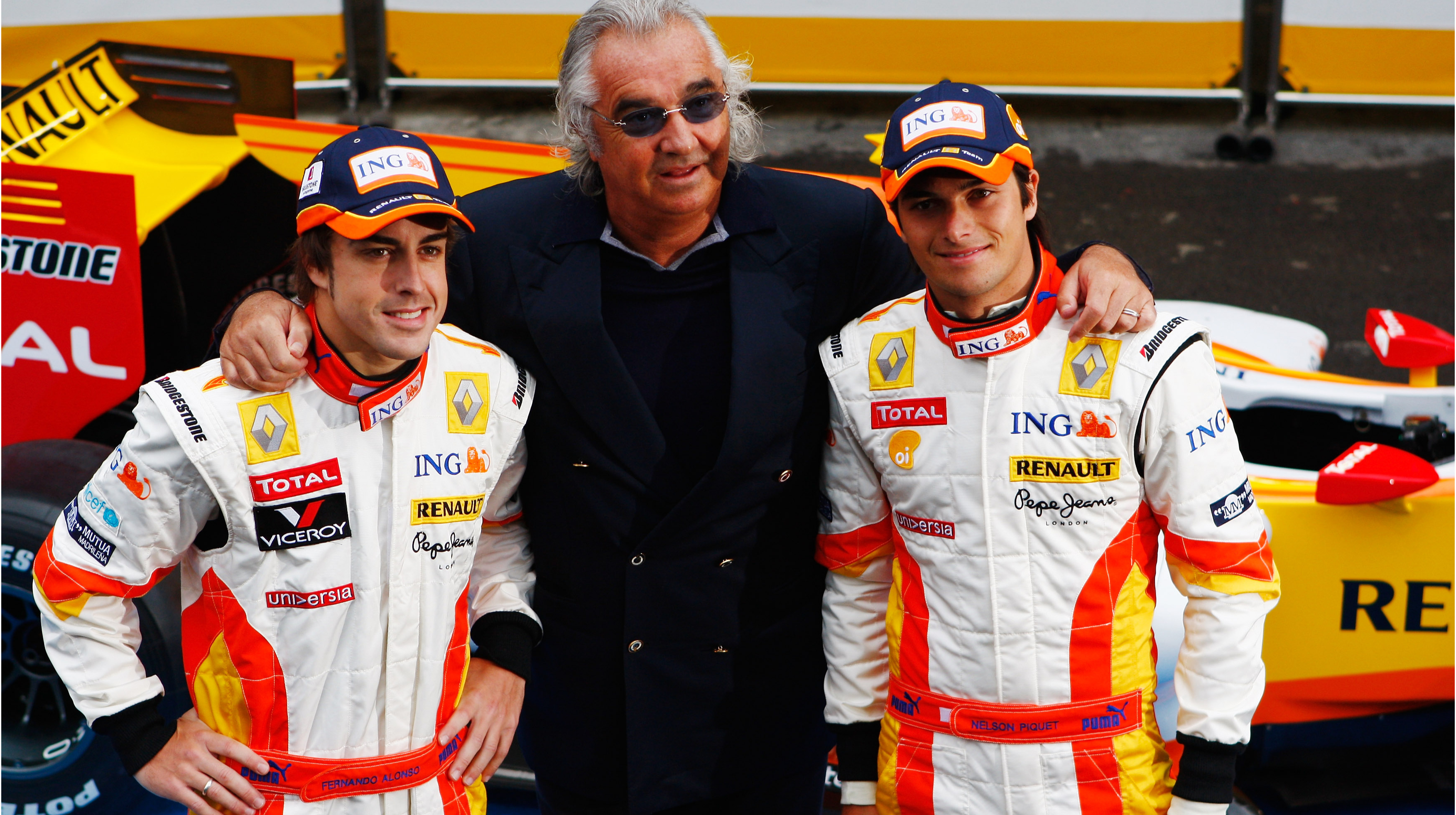 0
0 The English master of rain racing: The story of Jenson Button.
Early Years
On January 19, 1980, in the family of John Button and Simone Lyons, who lived in the small town of Frome, a son named Jenson was born. He became the fourth child but the first and only boy. Our hero's interest in racing was sparked by his father, who participated in rallycross competitions and was nicknamed "the Colorado Beetle."
The head of the family encouraged young Button's desire to continue the racing dynasty. Meanwhile, his mother resisted for a long time, arguing that it was too dangerous of a hobby.
Despite these "protests," at the age of eight, our hero got behind the wheel of a go-kart and began competing. By 1991, he won his first significant award—the British Cadet Championship title, and in 1997 he claimed the prestigious European Karting Championship title, which drew attention from racing teams.
The transition to "big wheels" occurred in 1998 when Button began racing in Formula Ford, achieving remarkable success. He not only won the British Championship but also secured the prestigious Formula Ford Festival trophy, after which he earned the right to test a Formula 1 car with the McLaren team.
The following year, our hero competed in British Formula 3, finishing in third place. This result again attracted the attention of the "big sharks" of motorsport.
In 2000, Jenson made his Formula 1 debut with the Williams team. He took his transition to the "royal races" so seriously that he even ended his relationship with his girlfriend, believing she distracted him from motorsport.
Interesting Fact: In 2001, the film "The Racer" was released. Although the film's actions take place in the American ChampCar series, many plot elements were borrowed from Formula 1 in the late '90s. One of the main characters, Jimmy Bly, was modeled after Jenson Button, who had already become a racing star in Britain by that time.
Williams, 2000
In his debut race at the Australian Grand Prix, despite starting from 21st position, our hero had every chance to score points. However, a mechanical failure 12 laps from the finish forced him to retire.
 9
9Nevertheless, the start of the race left a huge impression on many people. The next stage brought his first championship point.
Overall, no one had high expectations for the season. The leaders (McLaren and Ferrari) were far ahead. Meanwhile, somewhere in the shadows of the Schumacher-Hakkinen battle, there was a struggle among the second tier for third place in the Constructors' Cup and fifth in the personal standings.
Williams was just beginning to recover from a crisis that had started two years earlier due to several factors, the main one being Adrian Newey's departure from the team.
 0
0 Jenson's best result of the season was a 4th place finish in Germany. Naturally, all the glory from that stage went to Rubens Barrichello, who achieved his first victory after starting from 18th position. And somewhere in the background went unnoticed another feat: Button, who started the race last, made a breakthrough on a wet track in a "second-tier" car and became the "best of the rest."
Even then, our hero's ability to make wise decisions in changing weather conditions started to emerge, which later became his trademark.
Throughout the year, the Brit finished in the top six only six times. At that time, points were awarded under the 10-6-4-3-2-1 system. Thus, Jenson scored 12 points, which was half of what his teammate Ralph Schumacher (the younger brother of the "Red Baron") achieved. In the final standings, he finished in eighth place, while Williams secured third in the Constructors' Championship.
"Iron Frank" was always known for his tough treatment of his drivers. Just consider the firing of Nigel Mansell immediately after he became champion in a dominant manner. Much less renowned drivers were also easily "frozen out."
However, Button's story was different—he was only taken to the team for one season from the very beginning.
Benetton-Renault, 2001-2002
Good results for a rookie in 2001 allowed our hero to negotiate with several teams. Many were eager to acquire the talented driver.
Jenson chose the Benetton team, which had been purchased by the Renault automotive group. At the same time, the "evil genius" Flavio Briatore returned to leadership.
It should also be noted that in his home country of Great Britain, Button was always on the front pages of various press outlets. He was constantly praised, with many saying he was the future champion. Gradually, he caught "star fever."
If a year and a half earlier he had ended a relationship for the sake of his racing career, now he was spending too much time with his new girlfriend—singer Louisa Griffiths.
 2
2Our hero was frequently spotted in elite clubs across Europe, and he constantly made it onto the covers of tabloids, which negatively impacted his reputation.
Sports journalists did not overlook such a lifestyle: in the English media, Jenson began to be called a "playboy." He started to bear a resemblance to two other bright representatives of the United Kingdom—James Hunt and Eddie Irvine.
At the Monaco Grand Prix, our hero arrived on a yacht, where, according to rumors, parties with numerous guests were held. This act displeased the team boss. Incidentally, Flavio also arrived on a yacht, but it was five meters shorter.
Everything would have been fine, but disaster struck in terms of results on the track. Throughout 2001, Button managed to finish in the points only once—fifth place in that same Germany.
Although Benetton was already a weak car, the mechanics struggled for a long time to adapt to the young driver's driving style. And all this happened far behind his new partner—Giancarlo Fisichella.
By mid-season, Jenson gradually began to pull himself together. Carefully studying the telemetry, he started to adjust his work with the car. Results improved slightly, but points were still far off.
The championship ended with only a 17th place finish. Button's career was hanging by a thread. He narrowly avoided dismissal: it was saved by Briatore and Fisichella having a heated argument, and the Italian businessman didn't want to change both drivers at once.
Another unpleasant fact was that his former employer—Williams—returned to the top group. During the 2001 season, "Iron Frank's" team won four races.
In 2002, the Benetton team was completely rebranded as Renault. Flavio Briatore began to gradually correct the mess that had occurred within the team during his absence. The car started to improve little by little.
Jenson also completely abandoned his hedonistic lifestyle, began training both in racing and physical fitness, and even completed a triathlon during the offseason. The former party boy was nowhere to be found.
And this paid off. At the Malaysian Grand Prix, in the second race of the season, Button came extremely close to his first podium: he started the last lap in third place but was overtaken by Michael Schumacher over the final 5,543 meters of the Sepang track.</